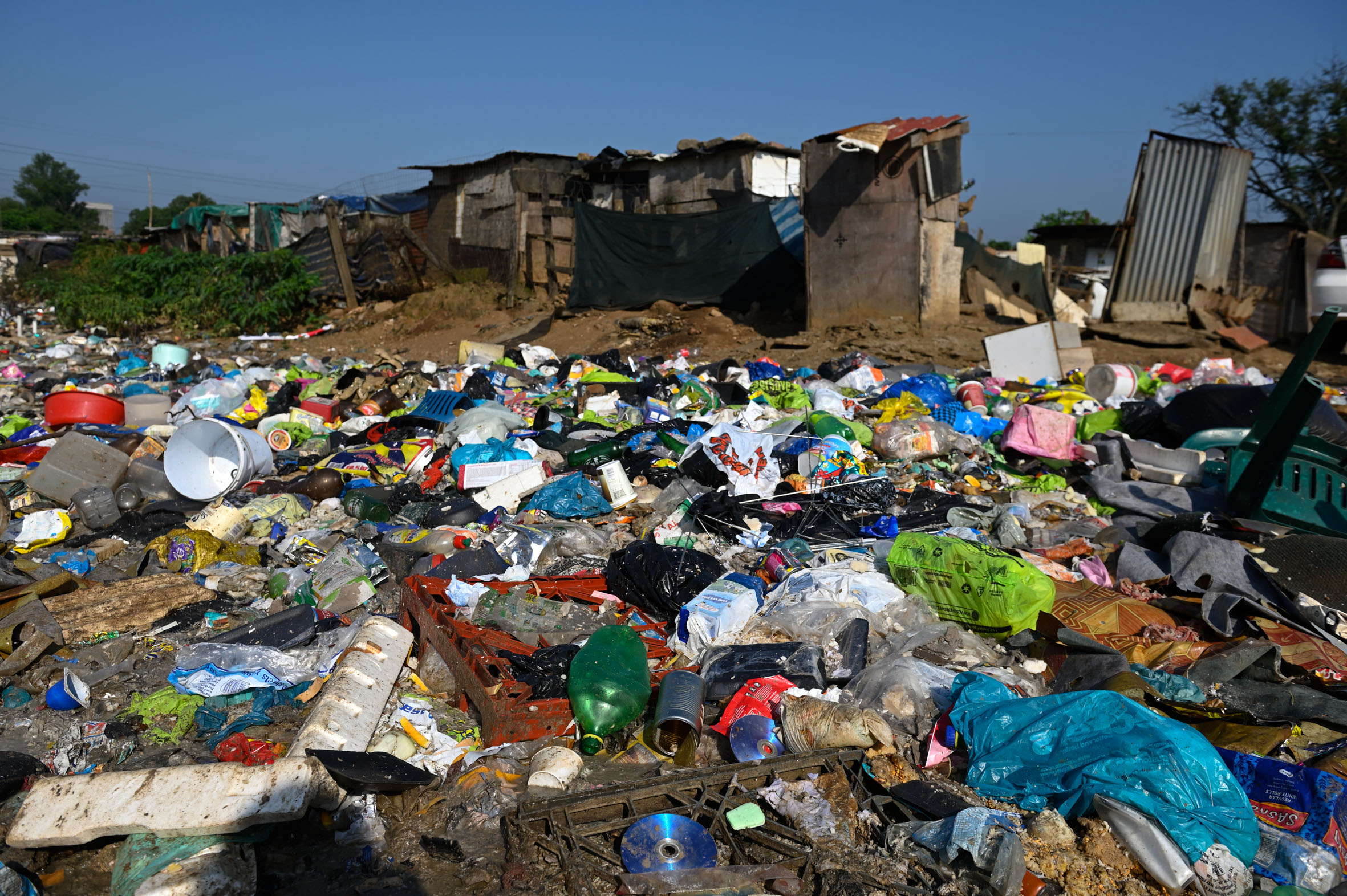Jika Joe residents poke the eye of the crocodile
The Pietermaritzburg shack settlement is a monument to ineptitude and inhumanity. Now, residents have found their power and are using it to force authorities to address their needs.
Author:
24 February 2022

The Msunduzi locals who remember him say Jika Joe was a tough taxi boss. He died years ago, but the shack settlement on the outskirts of Pietermaritzburg’s central business district bearing his name has been thrust into the spotlight, with residents blocking the N3 highway alongside their homes to draw attention to their plight.
Authorities appear to be dithering over how to respond, and have drawn the ire of critics for deploying the army.
The settlement has grown since 1994, but the handful of residents who remember Jika Joe say he was a firm but fair leader. Zodwa Kweyama, 50, who chairs the Abahlali baseMjondolo branch in the settlement, says, “Jika Joe was honest. He was a righteous judge. We were very safe from criminals if he was here. He wouldn’t take advantage of us.”
About 4 000 people now live in homes of wood, plastic and corrugated iron, crammed between the economic artery that is the N3 and the Dorpspruit River, which often floods.
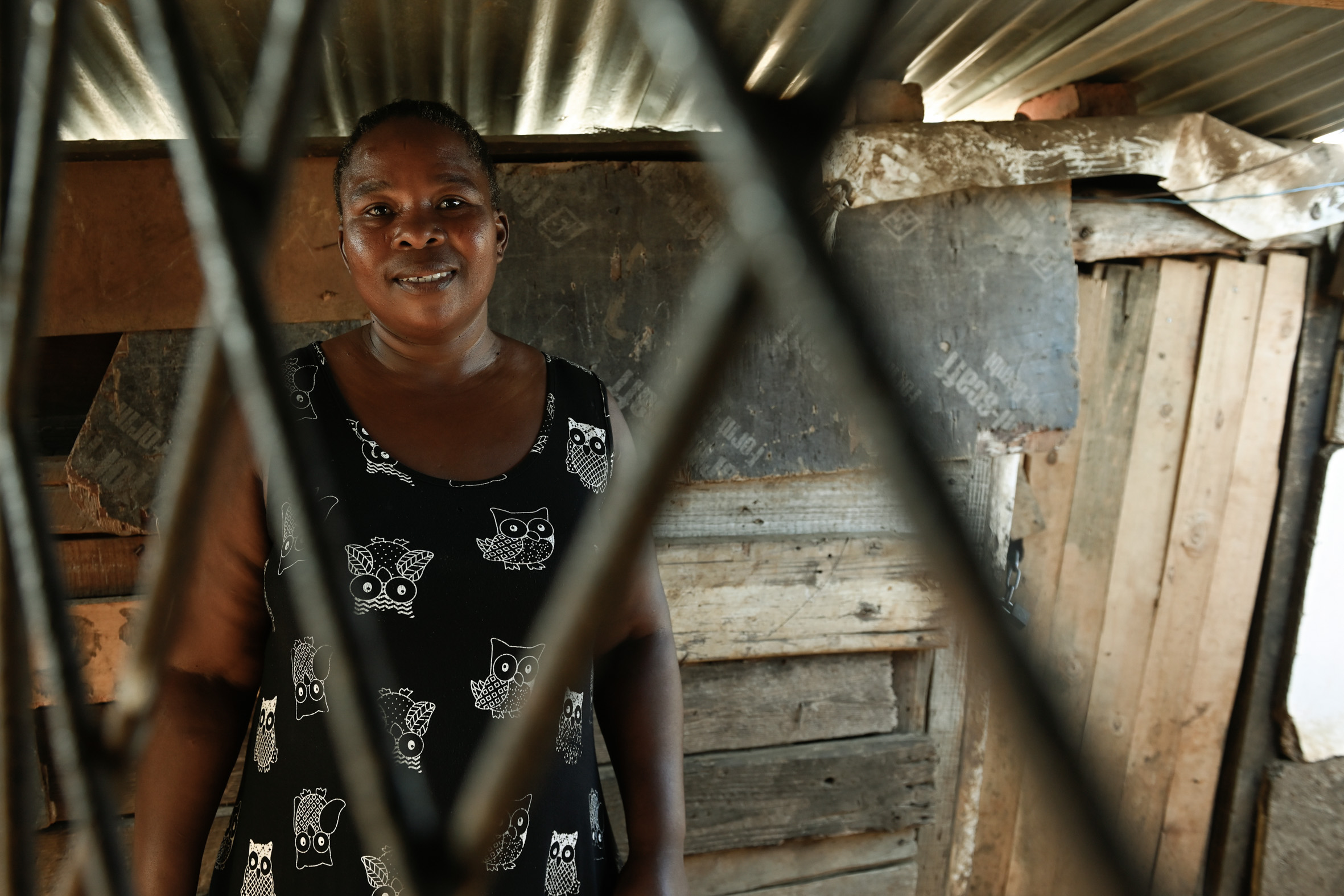
The settlement is a testament to the state’s failure to resolve the housing question. Rats swarm the mounds of rubbish stagnating in the summer heat. The pit latrines stink, and a handful of municipal water taps seem to have no drainage, creating swamp-like conditions.
Jika Joe residents are desperately impoverished and live in constant fear. “We are all scared of fire,” says Kweyama, “but we are terrified of electrocution. My God, the izinyoka-nyoka. If you don’t keep the children close to you, they will die.” Residents say 11 people, including three children, were electrocuted last year by the improvised electrical connections known as izinyoka-nyoka, low-hanging wires that snake through the shacks.
Kweyama has lived in Jika Joe since she was 23. She says the settlement provides cheap shelter for people flocking to town for work and school.
From discontent, disruption
The squalor of Jika Joe is juxtaposed by the big new state-housing project next door, where 14 four-storey blocks painted in pastel colours sit behind a fence – the site has been boarded up for months, despite 404 of the planned 760 apartments being ready for occupation. The state has committed to having the flats filled by May, but officials are wrestling with who will occupy the buildings that have cost the government R164 million so far.
Simmering discontent over the allocation of housing units prompted members of shack dwellers’ movement Abahlali baseMjondolo to block the N3 four times between 27 January and 10 February because they were “tired of living like pigs in the mud”, so they “grabbed the bull by the horns”.
Kweyama says the lights on the N3 are like eyes that are always open, like a crocodile. “So we decided to stick the crocodile in the eye so they will notice us … I cannot count how many times we have written letters and tried to speak to the municipality.” When their blockades affected access to and from the city, people suddenly darted around trying to set up negotiations, she says. Prior to that, they ignored Jika Joe’s residents.
“Once again we see that it is only when people take to the streets,” said Abahlali baseMjondolo, “that the government is willing to engage with them. It is the only language that the ANC-led government understands. They only take us seriously when we force them to take us seriously.”
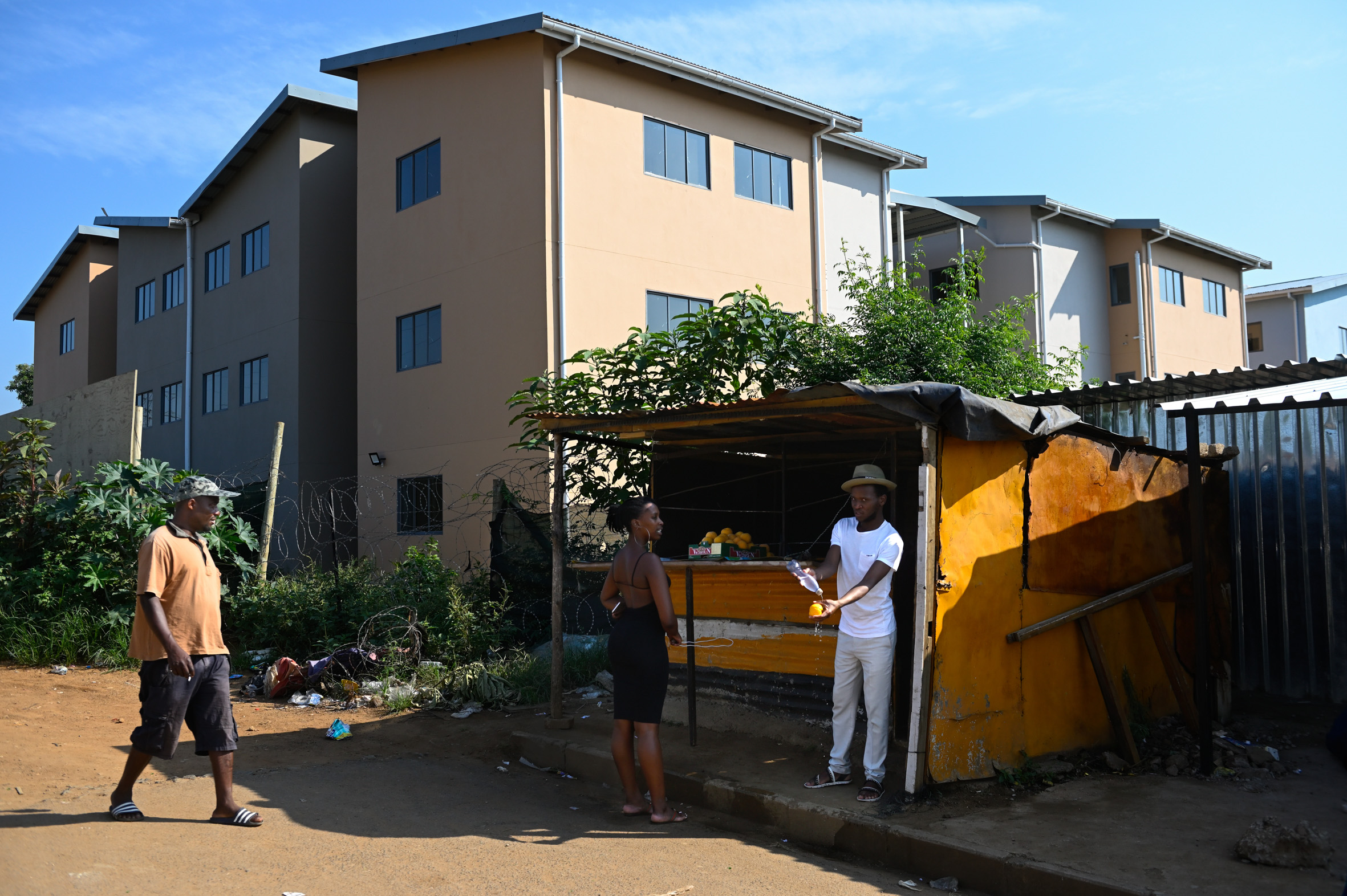
Political analyst Dale McKinley slated the Msunduzi authorities’ decision to deploy the army. Abahlali baseMjondolo has alleged that, in a kind of pincer move, protesters at the blockades were met by the army and the “taxi mafia”. The movement says the latter attacked Jika Joe residents at the most recent protest when demonstrators refused to dismantle their N3 blockade. Resident Sandiso Mazendala was seriously injured.
McKinley said deploying the army criminalises poverty. “Housing is a long-standing issue and an example of the total failure of the government. What is happening at Jika Joe is confirmation of the crisis, the mafia-sation of local delivery, where you see a local mafia, mostly ANC, that gets their hands on resources and communities are divided according to who is loyal to who. The state’s default here is the army because the police are so far up the mafia’s you-know-what that they can’t act. The army is not equipped to deal with this,” he said.
“The state closes down the participatory space when people are completely ignored. So then their only option is to protest and disrupt,” added McKinley.
The deployment of security forces was an “acknowledgement that the state is failing to engage its people”, said Abahlali baseMjondolo president S’bu Zikode, adding that he tried to engage the Department of Human Settlements to no avail. “There is a leadership vacuum. You are promoting violence when you deploy the police and the army. They don’t negotiate.”
‘Nowhere else to go’
Kweyama says residents are at their wits’ end. “We get nothing. We ask the municipality for help, for simple things like waste collection, but nothing, the rubbish just piles up. They build temporary [prefabricated] houses that have been here for 10 years. They build flats but we hear this is for Umkhonto weSizwe veterans.”
She says residents endure fires, floods, filth and greedy landlords because the settlement is close to town, schools and municipal dumpsites. “Most of us have nowhere else to go. Many people scavenge off the dumpsite. Others do jobs like sewing or welding.”
Mncedisi Khanyile, 35, and his friend Sbonelo Gambu, 38, are unemployed. “Life is terrible here,” said Gambu, seated outside a shebeen, “but what can we do?”
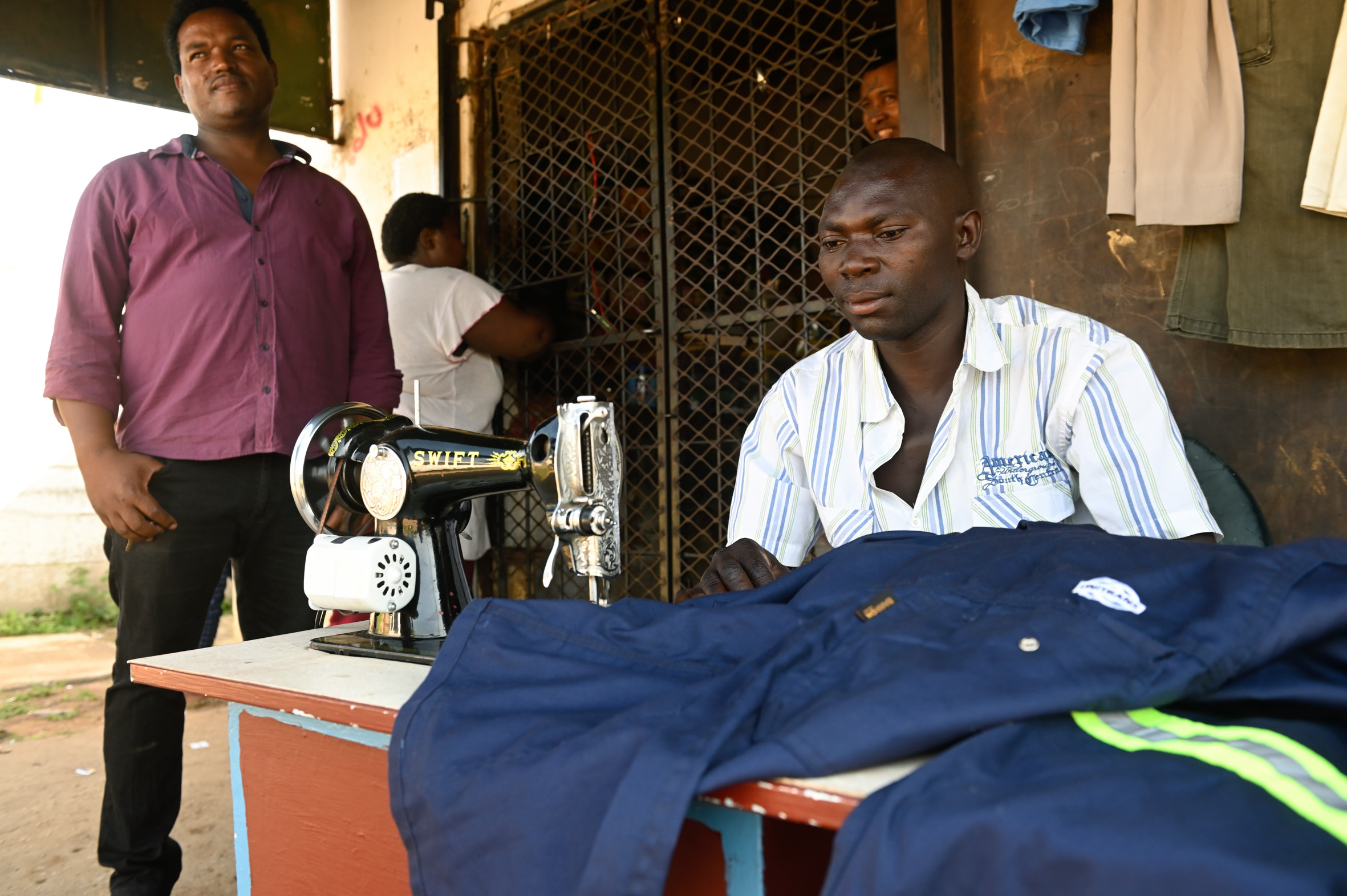
Shopkeeper Moses Goethe, 37, points out industrious neighbours who are trying to make a living. “People are not lazy. They are trying to work and help one another. God helps you if you help the poor,” he says.
“I don’t like it here,” says Nokuthula Mvelase, 47. “But I am close to town. I get part-time jobs as a domestic worker. I have four children to look after. It has gotten much worse since I arrived here 19 years ago. But where must we go?”
Ndukuyakhe Ngubane, 42, describes the desperation of Jika Joe residents while washing his clothes in a bucket. “We are living here. We have no choice. We hope for progress … A flush toilet would be like winning the lotto.” More pressing though, he says, is refuse removal. Residents pleaded with the municipality last year to collect rubbish.
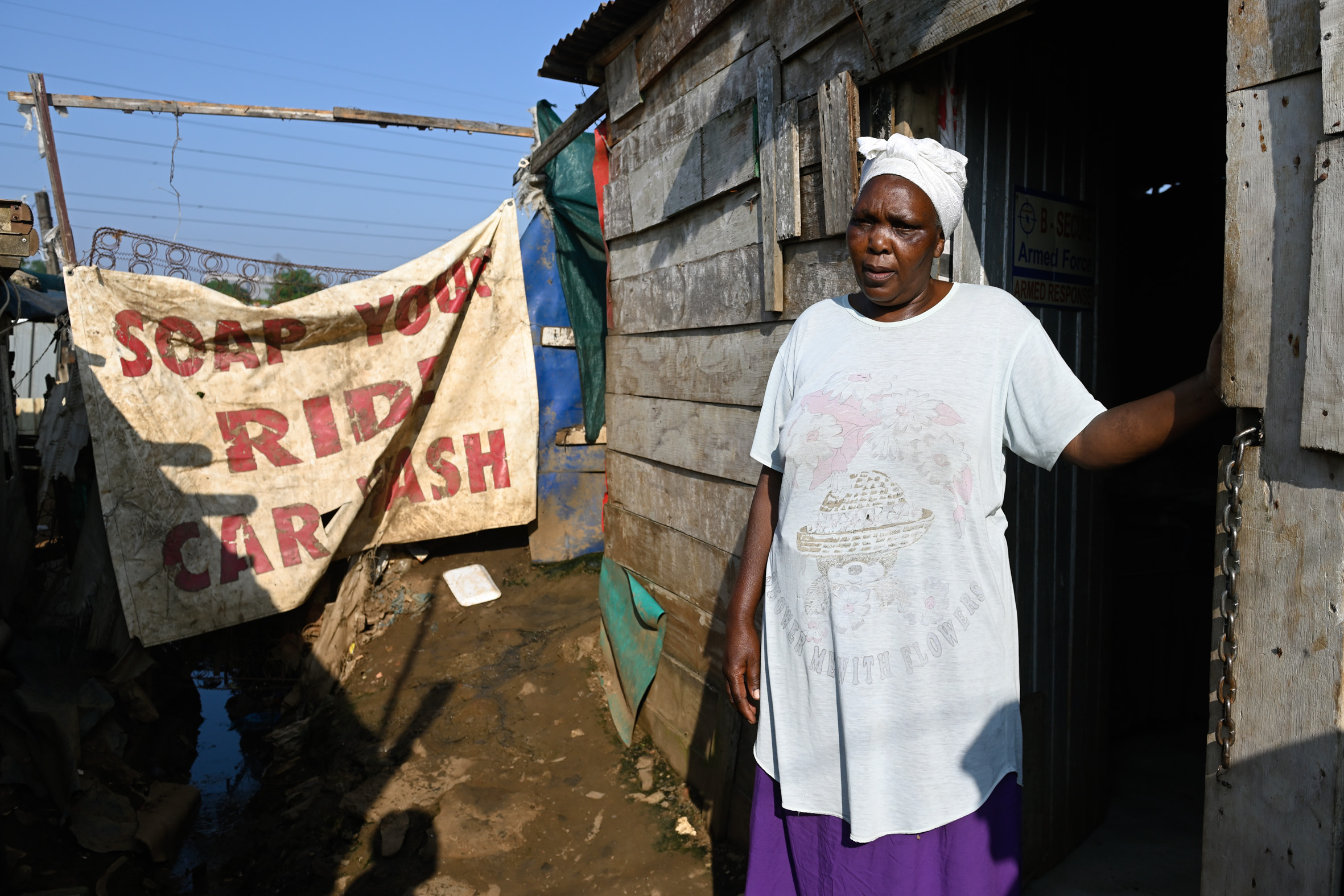
Without bins or skips, the waste has increased. “I eat and sleep next to this filth,” says Gladys Shabalala, 58. “The place is full of rats and people get sick from it.”
Baba Alpheus Ngcobo, 70, one of Jika Joe’s oldest residents, points to the shabby prefabricated houses that the municipality built 15 years ago. “They call them temporary houses. How can 15 years be temporary?”
The municipality said in July last year that it wanted to begin relocating residents to flats, but on condition that they pay rent. It never made the allocation process public, neither did it say which of the 4 000 Jika Joe residents would get the 400-odd flats.
Fear and suspicion
KwaZulu-Natal DA MP Hannah Winkler submitted a Promotion of Access to Information Act request to the national human settlements department on 15 February, asking for access to the Jika Joe Community Residential Unit housing list. She said the ANC had refused to explain the qualifying criteria. Confusion and a lack of transparency over the recipients of the new units creates suspicion among residents that the flats will go to “politically connected cronies”.
Winkler’s DA colleague Martin Meyer, who sits on the KwaZulu-Natal legislature’s human settlements committee, said the City claimed a study was done to determine what rentals Jika Joe residents could afford. But this seemed out of kilter as only 170 residents applied to live in the flats. Meyer said residents feared the flats would be allocated to outsiders who would sublet them.
Meyer said plans to move Jika Joe shack dwellers to sites, as yet undeveloped, about 20km away are “cruel”.
“I really don’t know what the solution is,” he said. “The City needs rental for the new flats to cover maintenance costs, so it won’t budge. And Jika Joe residents won’t budge either.”
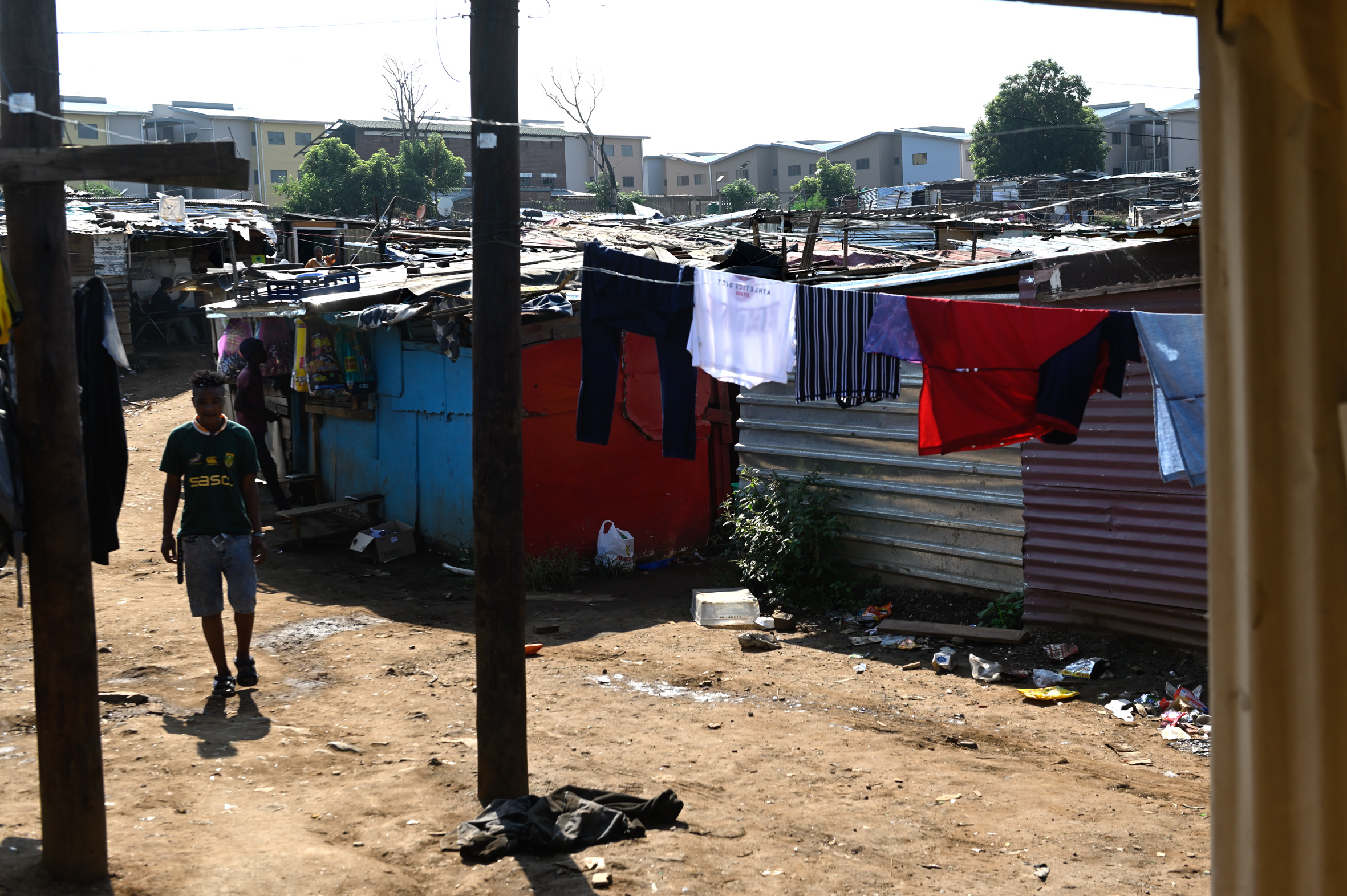
He added that the contrast between Jika Joe and the flagship-project flats visible from the highway, along with the residents’ power to hold the economy to ransom by blocking the N3, is a “glaring monument to failure”.
Attempts to get clarity from the Msunduzi Local Municipality were unsuccessful. But documents submitted to the parliamentary committee shed some light. They say that 37% of a wider plan for the Jika Joe precinct, allocated R445 million, had been spent thus far. The documents envisage monthly rentals of R600 for the 45m² flats.
The City was hoping to appoint a new agent to handle tenant management. One document says that while people from outside the shack settlement applied to live in the flats, Jika Joe residents would be prioritised.
The documents cite a community survey that said 1 023 of about 3 005 families in Jika Joe “qualified” to live in the flats, but do not say what the qualifying criteria are. Neither do they explain the allocation process.
